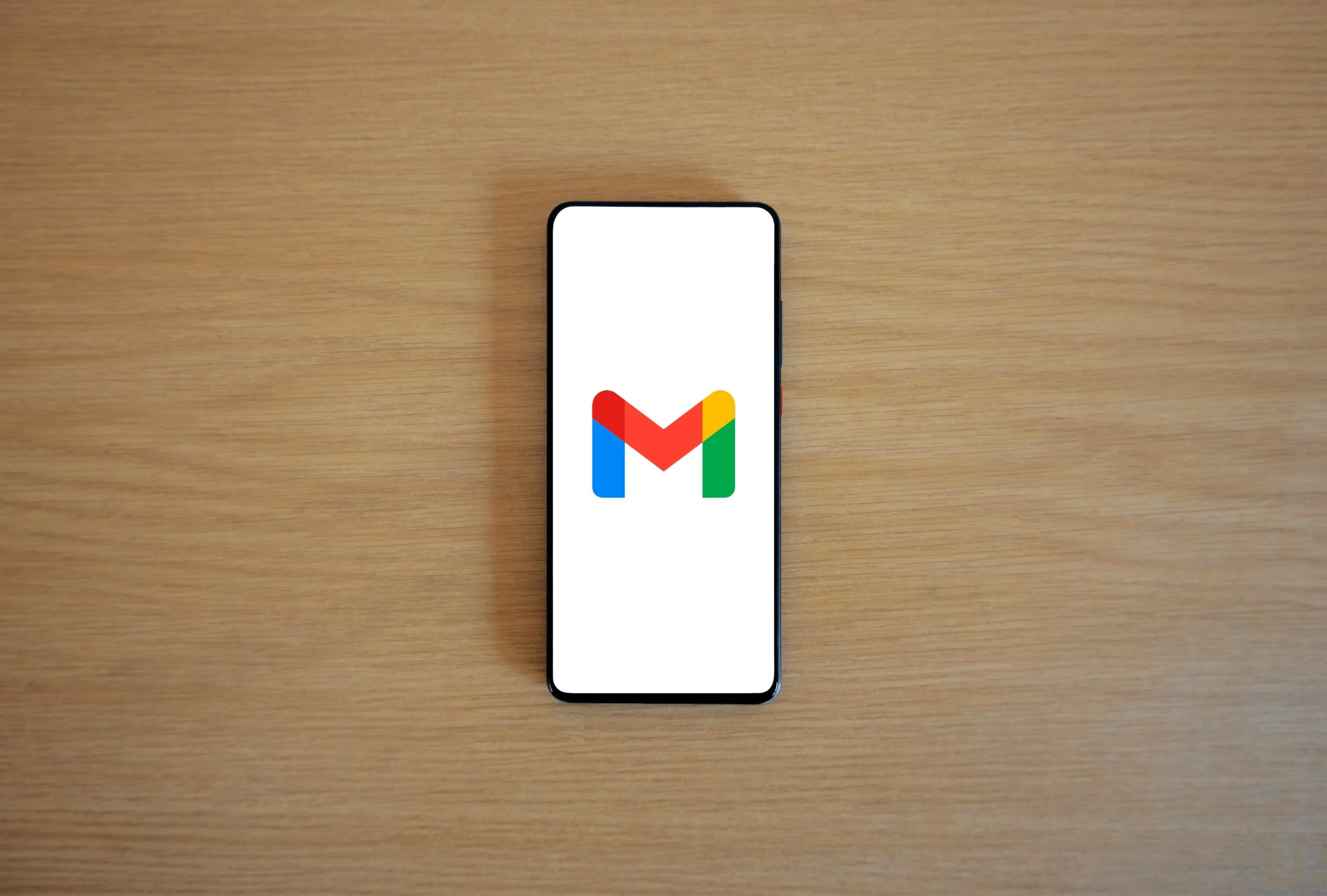If you’ve got a Gmail account, you need to pay attention to this. Google emergency warning just went out to billions of users, and it’s not something you can ignore. The company is telling everyone to change their passwords right now, and there’s a really scary reason why.
What started as a routine security check has turned into one of the biggest digital alerts in recent memory.
What Triggered This Google Emergency Warning?
The Google emergency warning comes after hackers from a group called ShinyHunters managed to break into one of Google’s databases through Salesforce. Now, before you panic, Google says no passwords were actually stolen. But here’s the thing – the hackers got something else that’s making them incredibly dangerous.
They got contact information, business details, and other basic data that might seem harmless. But these criminals are using that information to create super convincing fake emails and phone calls.
Think of it like this: if someone knows where you work, your boss’s name, and your company’s recent projects, they can pretend to be from IT support and sound totally legitimate.
The Phone Calls That Started It All

Here’s where the Google emergency warning gets really concerning. The hackers didn’t just steal data and disappear. They’re actively using it to call people and trick them into handing over their passwords.
“We believe threat actors using the ‘ShinyHunters’ brand may be preparing to escalate their extortion tactics,” Google’s Threat Intelligence Group warned in their blog post.
These aren’t random scam calls. The hackers are researching their targets. They’ll call you using a phone number with a 650 area code (which looks like it’s from Google’s California headquarters) and claim there’s been suspicious activity on your account.
They know enough about you to sound convincing. They might mention your workplace, reference recent Google services you’ve used, or even know the names of people in your company.
Why This Google Emergency Warning Affects Everyone
Even if your specific information wasn’t in the breach, the Google emergency warning still matters for you. Here’s why: these hackers are really good at what they do, and they’re targeting anyone with a Gmail account.
ShinyHunters isn’t some amateur group operating out of someone’s basement. They’ve been behind major breaches at companies like Tokopedia, Mashable, and Wattpad. They know how to make their scams believable.
The group got their name from Pokémon (specifically, the term for finding rare shiny Pokémon), but there’s nothing playful about what they do. They’re serious criminals who’ve stolen data from millions of people.
What the Hackers Actually Got
The Google emergency warning explains that the stolen information was mostly “basic and largely publicly available business information.” But cybersecurity experts say that’s still plenty to work with.
The hackers now have:
- Contact details for businesses
- Company names and employee information
- Basic business relationship data
- Notes about business interactions
It might seem harmless, but this data is like gold for scammers. They can use it to impersonate legitimate businesses, pretend to be your colleagues, or create fake emergencies that seem real.
The 650 Area Code Scam
One specific thing mentioned in the Google emergency warning is phone calls from numbers with 650 area codes. If you get a call from someone claiming to be a Google employee about a security issue, hang up immediately.
“Gmail users are now being targeted in vishing attacks coming from phone numbers with a 650 area code,” security researchers reported on Reddit.
Real Google employees will never call you randomly to tell you about account problems. The company just doesn’t work that way. If there’s a real issue, you’ll get an official email or see a notification when you log into your account.
When the Google Emergency Warning Started

Google’s security team first noticed the breach back in June 2025, but the Google emergency warning only went public recently because it took time to understand what the hackers were doing with the stolen information.
By August, it became clear that the criminals weren’t just storing the data – they were actively using it for phishing and vishing (voice phishing) attacks. That’s when Google decided everyone needed to know.
“By August, the attackers had already carried out multiple successful intrusions using accessed passwords,” according to security reports.
What You Need to Do Right Now
The Google emergency warning isn’t just about being aware – there are specific steps you need to take to protect yourself:
Change your password immediately. Don’t wait. Even if you think your account is safe, create a new, strong password that you’ve never used before.
Turn on two-factor authentication. This means even if someone gets your password, they still can’t get into your account without your phone.
Don’t click suspicious links. If you get an email claiming to be from Google, don’t click anything. Go directly to Gmail by typing the address yourself.
Never give information over the phone. If someone calls claiming to be from Google, hang up and contact Google through official channels if you’re worried.
How to Spot the Fakes
The Google emergency warning includes tips on recognizing fake communications. Here are the biggest red flags:
Unexpected phone calls about security issues – Google doesn’t call people like this Emails asking you to click links to “verify” your account – real Google emails don’t work this way Messages creating urgency, like “Your account will be closed in 24 hours” – scammers love creating panic Requests for passwords or personal information – legitimate companies never ask for this
The Bigger Picture
This Google emergency warning is part of a much larger problem. Cybercriminals are getting smarter about using stolen data to create convincing attacks. They’re not just sending obvious spam emails anymore – they’re doing research and creating personalized scams.
“Phishing and vishing attacks now account for 37% of successful account takeovers across Google services,” according to the company’s security data.
The ShinyHunters group has been particularly successful because they take time to research their targets. They don’t just send generic scam emails – they create custom attacks based on the information they’ve stolen.
Why Google Waited to Warn Everyone
You might wonder why the Google emergency warning took so long to reach users if the breach happened in June. The answer is that Google wanted to understand exactly what the hackers were doing before alerting everyone.
Sometimes, publicizing a breach too quickly can actually help criminals by giving them ideas they hadn’t thought of. Google waited until they could provide specific, actionable advice about protecting yourself.
Users who were directly affected got personal notifications on August 8th. The broader Google emergency warning came later once the company understood the full scope of the threat.
What Google Is Doing
Beyond issuing the Google emergency warning, the company is actively working to stop these attacks. They’re monitoring for suspicious activity, improving their security systems, and working with law enforcement to track down the criminals.
Google has also updated their Advanced Protection Program, which provides extra security for people who are at high risk of being targeted. If you’re worried about your account, this might be worth looking into.
The ShinyHunters Track Record
Understanding who’s behind this makes the Google emergency warning even more serious. ShinyHunters has been operating since 2020 and has stolen data from hundreds of companies.
They typically use social engineering – basically, they’re really good at manipulating people into doing what they want. They’ll spend weeks studying a company before making their move.
Their past victims include major retailers, social media platforms, and financial services companies. They usually demand payment in Bitcoin and give victims just 72 hours to pay up.
Protecting Your Other Accounts
While this Google emergency warning focuses on Gmail, you should also secure your other accounts. Criminals often use information from one breach to attack other services.
Update passwords on all your important accounts – banking, social media, work email, shopping sites, and anywhere else you store sensitive information. Use different passwords for each account.
Consider using a password manager to keep track of all these different passwords. It’s much safer than trying to remember dozens of complex passwords.
What Happens Next
The Google emergency warning is just the beginning. Security experts expect ShinyHunters to continue their attacks, possibly getting more aggressive as time goes on.
“These new tactics are likely intended to increase pressure on victims,” Google warned in their security bulletin.
The good news is that Google is actively monitoring the situation and will send additional warnings if new threats emerge. But the responsibility for protecting your account ultimately falls on you.
Don’t Become a Statistic
The Google emergency warning exists because too many people have already fallen for these scams. Don’t let yourself become another victim.
The criminals behind this are professionals who’ve studied human psychology. They know how to create fear, urgency, and confusion that makes people act without thinking.
The best defense is to slow down, think critically about unexpected communications, and follow the security steps Google has recommended. Your account security is worth a few minutes of inconvenience.
Take the Google emergency warning seriously, update your security settings, and stay vigilant. These criminals are counting on people to ignore warnings like this – don’t give them what they want.
